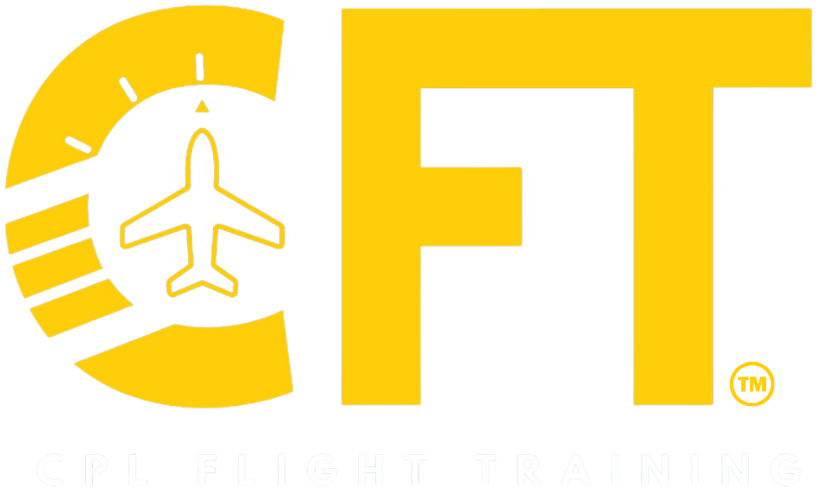- India | USA | South Africa | Australia | U.K
- info@cplflighttraining.com
- Opening : Mon-Sat 08:30 - 18:00
DGCA Ground School
What are the DGCA Subjects for Pilots ?

Mastering the Theoretical Subjects for DGCA Exams: Our DGCA Ground School to Becoming a Pilot in India (CPL and ATPL)
Introduction
Becoming a pilot in India involves rigorous theoretical training as prescribed by the Directorate General of Civil Aviation (DGCA). For aspiring Commercial Pilot License (CPL) and Airline Transport Pilot License (ATPL) holders, excelling in DGCA examinations is essential to demonstrate knowledge, competency, and readiness for flying careers. This blog explores the DGCA syllabus for CPL and ATPL, outlining the key theoretical subjects, their importance, chapters covered, and the difficulty level as shared by past candidates.
DGCA Theoretical Subjects for CPL (Commercial Pilot License)
Achieving a CPL in India requires candidates to clear several theoretical exams. The subjects test technical, operational, and regulatory knowledge, ensuring pilots possess the skills needed to fly safely and efficiently. Here is an overview of the key subjects and their content:
Air Navigation
- Importance: Accurate navigation is crucial for flight safety, making this subject essential for aspiring pilots.
- Key Chapters:
- Basics of Navigation
- Instruments and Equipment
- Flight Planning
- Chart Reading and Plotting
- Radio Navigation
- Difficulty Level: Rated as moderately difficult due to the complex calculations and attention to detail required.
Meteorology
- Importance: Understanding weather patterns and conditions is vital for planning and executing safe flights.
- Key Chapters:
- Atmosphere and Weather Systems
- Pressure, Temperature, and Winds
- Cloud Formation and Precipitation
- Aviation Weather Hazards (e.g., turbulence, icing)
- Difficulty Level: Considered challenging due to the scientific concepts and analysis of weather charts.
Air Regulation
- Importance: Covers rules, regulations, and safety standards set by the DGCA and international aviation authorities.
- Key Chapters:
- Aircraft Rules and DGCA Regulations
- Air Traffic Services
- Licensing Requirements and Restrictions
- Difficulty Level: Moderately easy, but requires a thorough understanding of regulations.
Technical General
- Importance: Provides an in-depth understanding of aircraft systems and operations.
- Key Chapters:
- Airframes and Engines
- Electrical and Hydraulic Systems
- Instruments and Avionics
- Difficulty Level: Tough due to detailed technical concepts.
Technical Specific
- Importance: Focuses on specific aircraft types, making it highly relevant for hands-on operations.
- Key Chapters:
- Aircraft Specific Systems
- Emergency Procedures
- Performance Calculations
- Difficulty Level: Varies based on aircraft type but generally considered medium.
DGCA Theoretical Subjects for ATPL (Airline Transport Pilot License)
The ATPL exams are more extensive than CPL and are designed for pilots aspiring to become captains. The subjects covered include advanced versions of CPL topics, with greater emphasis on operations, management, and decision-making.
Advanced Air Navigation
- Importance: Focuses on complex navigational techniques used in long-haul and international flights.
- Key Chapters:
- Advanced Navigation Systems (INS/GNSS)
- High-Altitude Navigation
- Position Fixing and Errors
- Difficulty Level: High due to mathematical complexity and advanced calculations.
Advanced Meteorology
- Importance: Covers detailed analysis and interpretation of weather for global routes.
- Key Chapters:
- Climatology
- Tropical Cyclones and Jet Streams
- Advanced Weather Charts
- Difficulty Level: High due to in-depth coverage of complex weather phenomena.
Radio Aids and Instruments
- Importance: Provides an understanding of navigation aids, communication, and cockpit instruments.
- Key Chapters:
- Radio Navigation Systems
- Instrument Landing Systems (ILS)
- Instrument Interpretation and Use
- Difficulty Level: Medium to high, based on the technicality involved.
Performance
- Importance: Helps pilots understand aircraft performance limits and optimize flight safety and efficiency.
- Key Chapters:
- Take-Off and Landing Performance
- Climb and Cruise Calculations
- Difficulty Level: Moderately tough due to complex performance calculations.
Flight Planning and Monitoring
- Importance: Covers route planning, fuel management, and operational aspects of airline flights.
- Key Chapters:
- Fuel Calculations and Load Sheets
- Route Planning and Operational Briefing
- Difficulty Level: Considered challenging, particularly for long-haul flights.
Air Law and Operational Procedures
- Importance: Ensures compliance with international laws, safety standards, and emergency procedures.
- Key Chapters:
- ICAO Standards
- Emergency Protocols
- Difficulty Level: Medium but requires memorization of regulations and international protocols.
Mandatory Requirements for DGCA Theoretical Exams
- Computer Number: Applicants must possess a valid computer number issued by the DGCA.
- Application Process: Register for the DGCA exam slots through the Pariksha portal and pay the required fee.
Tips to Excel in DGCA Exams
- Consistent Study: Dedicate regular hours to study each subject.
- Mock Tests: Practice DGCA-style mock exams to familiarize yourself with the format.
- Seek Guidance: Take support from your flight training institute or experienced mentors for difficult subjects.
- Plan for Difficulty Levels: Focus extra attention on tougher subjects such as Navigation and Meteorology
Conclusion
Clearing DGCA theoretical exams is essential for every aspiring CPL or ATPL holder in India. Mastering these subjects ensures pilots possess a deep understanding of aviation operations, safety, and regulations. While challenging, these subjects lay the foundation for a rewarding career in aviation, preparing pilots for real-world challenges both in the cockpit and beyond.
